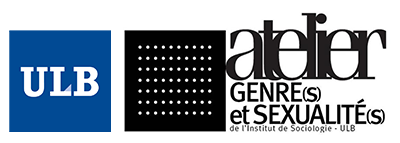Dans la même rubrique
- AGS
- FR
- Le Centre
- Archives de l'Atelier
- 2011
-
Partager cette page
Cooperative Transnationalism in Contemporary Europe: Contested International Norms and the Struggle for Recognition by Sexual Minorities in Germany and Poland
27 avril

En collaboration avec le centre Metices.
Phillip M. Ayoub
(Cornell University)
Discussant: Alison Woodward (Vrije Universiteit Brussel)
Salle Henri Janne (15è étage)
Résumé
The fall of the Berlin Wall resulted in an unprecedented exposure of former Communist Bloc states to western norms and institutions. The introduction of western advocacy groups to Central/Eastern European states is a test case for international norm diffusion theory, which stipulates that ideas spread from areas where they are accepted to areas where they are not. This essay deals with such transnational interactions, and the tension between new international ideas and domestically rooted traditional ones that do not coexist harmoniously. Specifically, it explores the roles of transnational identities and public spheres in shaping the claims of recognition for sexual minorities. It addresses the question of how the process of transnationalization works in the spread of norms concerning sexual minorities: How do sexual minorities organize? Who takes part? How do identities and skills travel and adapt in various national contexts? I argue that a common identity and the strategic use of available transnational resources drive a process that brings together otherwise disparate groups of activists, shaping the transnational mobilization around sexual minority issues.
The analysis will focus on activists in Germany and Poland, making explicit the connections between the “norm entrepreneurs” and the “target state” by illustrating how Polish and German activists used resources available to them in Germany to place pressure on the Polish society and the state. I will argue that this involvement occurs in a type of activism similar to what Imig and Tarrow call “cooperative transnationalism,” where the actors involved are transnational but the foreign target of contention is domestic (2001, 17). For example, in 2005 the illegal gay rights march in Warsaw was largely composed of German citizens and ex-Patriot Poles. They included prominent German politicians, whose presence activists had requested to attract international media attention. In fact, a transnational group of activists at a German organization (Maneo) played a defining role in organizing the protest. Many of these activists were expatriate Poles – “rooted cosmopolitans”* – who were empowered by resources made available to them in Berlin. Later, Tomek Baczkowski of Maneo brought a case against Poland (for prohibiting the protest) before the European Court of Human Rights, which decided in his favor and made similar parades legal in all Polish cities. A plethora of analogous examples exists, making the involvement of groups across the Oder-Neisse a valuable case for the study of change concerning sexual minority rights. Finally, the essay also reflects on the strengths and limitations of such processes, as well as the effects of anti-gay transnational activism – acknowledging that European standards of appropriate behavior concerning sexual minorities smack of outside imposition to some and welcome modernity to others.
* Rooted cosmopolitans refer to “people and groups who are rooted in specific national contexts, but who engage in regular activities that require their involvement in transnational networks of contacts and conflicts” (Tarrow and della Porta 2005, 237; Tarrow 2005, 35-71).
Bio/bibliographie
Phillip Ayoub holds M.A. degrees from the University of North Carolina at Chapel Hill and from Cornell University. Currently, he is a doctoral candidate in the Department of Government at Cornell University and a Fulbright/Humboldt Chancellor Fellow at the Free University Berlin and at the Humboldt University Berlin. His research lies at the intersection of international relations and comparative politics, with a focus on transnational actors, social movements, and minority politics. Phillip’s dissertation project deals with international norm diffusion as it pertains to changing legislation and social perceptions of marginalized minorities in an integrating Europe.
